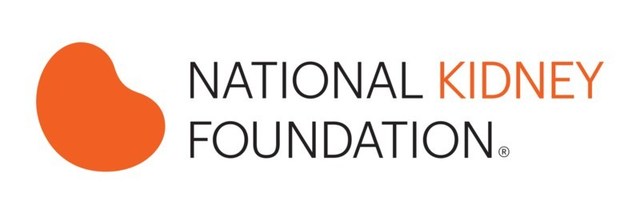As new therapeutic drug treatments become available to help slow the progression of kidney disease, it is important to ensure that patients have access to, and can afford, these innovations that improve clinical outcomes.
|
NEW YORK, Aug. 4, 2021 /PRNewswire/ -- As new therapeutic drug treatments become available to help slow the progression of kidney disease, it is important to ensure that patients have access to, and can afford, these innovations that improve clinical outcomes. The National Kidney Foundation (NKF) has long championed research and clinical trials on therapies that not only treat underlying causes of kidney disease, such as diabetes, but that specifically preserve kidney function and reduce the morbidity and mortality associated with chronic kidney disease (CKD). Three entirely new classes of drugs now exist that can modify the progression of kidney disease.
Three entirely new classes of drugs now exist that can modify the progression of kidney disease. In simple terms, more interventions are available than ever before that can keep people with kidney disease alive and untethered to a dialysis machine. Heart disease is the most common cause of death for people with kidney disease. It is more common for people with kidney disease to die of heart disease than it is for them to progress to kidney failure. Thus, classes of drugs that protect the kidney and the heart are of the utmost importance to patients. SGLT2 inhibitors, GLP-1 receptor agonists, and non-steroidal mineralocorticoid receptors (MRAs) are effective at slowing the progression of kidney disease, reducing cardiovascular events, and reducing the risk of kidney failure and death in people with kidney disease and type 2 diabetes. SGLT2 inhibitors also protect the kidneys of people with CKD who do not have diabetes. Now that several such treatments have been recently approved by the Food and Drug Administration (FDA) it is imperative that the people who will benefit most—patients living with kidney disease—have access to these innovative new treatments. NKF calls on payers, benefit managers, and physicians to ensure that these breakthrough therapies are available and accessible to kidney patients and other populations at high risk for developing kidney disease. We also urge manufacturers, policymakers, and other stakeholders to ensure that cost and affordability do not put these novel therapies out of reach for low-income and underserved populations. Kidney Disease Facts Approximately 785,000 Americans have irreversible kidney failure and need dialysis or a kidney transplant to survive. More than 555,000 of these patients receive dialysis to replace kidney function and 230,000 live with a transplant. Nearly 100,000 Americans are on the waitlist for a kidney transplant right now. Depending on where a patient lives, the average wait time for a kidney transplant can be upwards of three to seven years. About the National Kidney Foundation About the American Society of Nephrology
SOURCE National Kidney Foundation |





